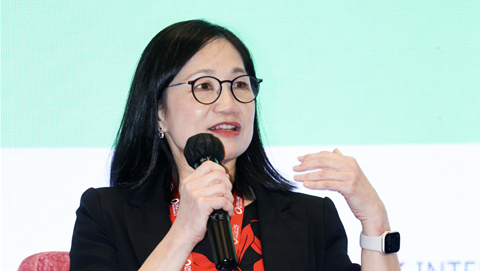In the wake of the pandemic, traditional and perceived barriers like technology immaturity and employee opposition to change have fallen away with about two-thirds or 66% of C-suite executives saying they have accelerated their digital transformation in their organisations, an IBM Institute for Business Value study, released at the end of December 2020, found.
The study, “COVID-19 and the Future of Business in Singapore”, said that Singapore business leaders are now undertaking initiatives that had previously encountered resistance. Many are facing a proliferation of initiatives due to the pandemic and are having difficulty focusing, but do plan to prioritise internal and operational capabilities such as workforce skills and flexibility - critical areas that can jumpstart progress.
The study recommended three proactive steps business leaders can take to survive and thrive.
Improving operational scalability and flexibility
The ongoing disruption of the COVID-19 pandemic has shown how important it can be for businesses to be built for change. Many executives are facing demand fluctuations, new challenges to support employees working remotely and requirements to cut costs.
The majority of organisations are making permanent changes to their organizational strategy. For instance, 95% of Singapore executives surveyed plan to participate in platform-based business models by 2022, and many reported they will increase participation in ecosystems and partner networks.
Recognising this, executives are looking towards more scalable and flexible IT infrastructure. Many within the survey indicated they are increasing their investments in innovative technologies such as AI and IoT, as well as the cloud and blockchain to assist with the new demands on the IT infrastructure.
Executives have become more trusting of what technology can do and are pushing ahead with digital transformation.
Applying AI, automation and other exponential technologies to help make workflows more intelligent
The COVID-19 pandemic has disrupted critical workflows and processes at the heart of many organisations' core operations. Technologies like AI, automation and cybersecurity that could help make workflows more intelligent, responsive and secure are increasing in priority.
Among some of the key highlights over the next two years, the report finds that 77% of Singapore executives said they are increasing their cybersecurity commitments in line with increasing concerns, with 42% planning to use AI to enhance their cybersecurity simultaneously.
A total of 87% plan to focus on enterprise agility, which is the most important issue for Singapore leaders. Key to this agility is the ability to look more inwards the management of cost, with reducing costs is cited as the top benefit attributed to transformation initiatives.
Lead, engage and enable the workforce in new ways
The study showed that there is a disconnect between employers and employees, particularly around what employers are offering versus what employees consider a priority.
Executives contend that employee well-being is among their highest priorities. Despite this, only about half of employees say they believe that their employer is genuinely concerned about their welfare. Workforce safety, skills, and flexibility have taken precedence while employee satisfaction has been severely deprioritized.
To address this gap, IBM recommends executives place deeper focus on their people, putting employees' end-to-end well-being first. Empathetic leaders who encourage personal accountability and support employees to work in self-directed squads that apply design thinking, Agile principles and DevOps tools and techniques can be beneficial.
It added that organisations should also think about adopting a holistic, multi-modal model of skills development to help employees develop both the behavioural and technical skills required to work in the new normal and foster a culture of continuous learning.










